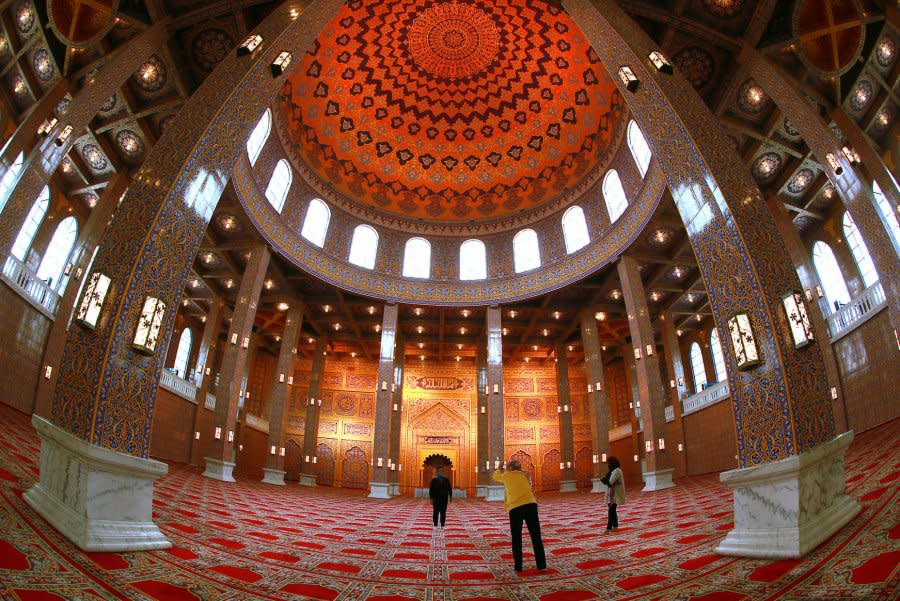Human Rights Watch: China engaged in systematic mosque-reduction 'to curb practice of Islam'

Nov. 22 (UPI) -- Beijing has closed or destroyed at least 1,300 mosques in the country's Ningxia and Gansu provinces as part of its drive to "Sinicize" religion, according to a Human Rights Watch report released Wednesday.
The Chinese Communist Party's so-called "mosque consolidation" policy was part of a deliberate push to suppress Islam, the group said in a news release.
"The Chinese government is not 'consolidating' mosques as it claims, but closing many down in violation of religious freedom," said HRW acting China director Maya Wang. "The closure, destruction, and repurposing of mosques is part of a systematic effort to curb the practice of Islam in China."
HRW said Chinese state control over religion had tightened since 2016 when President Xi Jinping called for the "Sinicization" of religions to ensure the communist party is the sole arbiter of people's spiritual life.
The state has its own branches of the major religions and restricts worship to officially sanctioned houses of worship over which authorities retain strict control.
The drive to make Islam "more Chinese" gathered momentum in 2018 when the party ruled that in order to "compress the overall number [of mosques]" there should be more "[mosque] demolitions than constructions."
In the past three years, Chinese authorities have decommissioned, closed down, demolished, and converted for secular use about 1,320 of Ningxia province's 4,000 or so mosques, according to research by two British academics who specialize in the study of Asia's Hui Muslims.
Islamic architectural features, such as domes and minarets, have also been removed from many other mosques.
Government records back up claims it has been "consolidating" mosques in the two provinces with the largest Muslim populations after Xinjiang where authorities damaged or destroyed two-thirds of mosques, according to the Australian Strategic Policy Institute.
HRW says Hui Muslims it has spoken with say the actions -- including going as far as removing essentials such as preachers' podiums -- were aimed at redirecting loyalty toward the Communist Party and dissuading people from going to pray at mosques, which authorities subsequently shut due to lack of attendance.
Students and government employees resistant to persuasion are threatened with school probation and unemployment.
"After the mosques are converted, the local governments strictly monitor attendance at the remaining mosques," one Muslim told HRW. "In the beginning, they would check the attendees' national identification cards. Then they install surveillance cameras to flag those prohibited from mosques, including Communist Party members or children."
HRW urged China to scrap its religious Sinicization campaign, repeal laws and regulations restricting the right to freedom of religion, and release those detained for speaking out or protesting against the crackdown.
It also called on the international community, particularly the Organization of Islamic Cooperation countries to apply pressure on Beijing.
"The Chinese government's policies of Sinicization show a blanket disregard for freedom of religion not only of all Muslims in China, but all religious communities in the country," said Wang.
"Governments concerned about religious freedom should raise these issues directly with the Chinese government and at the United Nations and other international forums."

